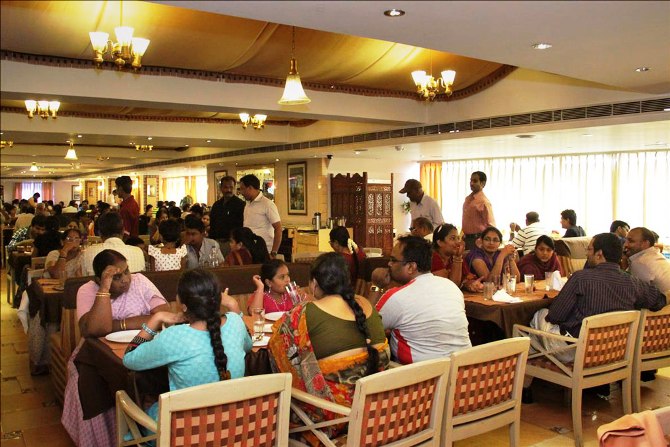India’s quick restaurant services catching private equity and venture capital investors’ fancy may not come as a surprise to many.
But what seems to have tickled their taste buds the most lately is the authentic Indian biryani.
The QSRs serving this delicacy appear to have become the hot destination for these investors to put their money in.
PE investors’ love affair with this food saw SAIF Partners last year investing Rs 40 crore (Rs 400 million) in TMA Hospitality Services, which owns Ammi’s Biryani, a Bengaluru-based QSR chain.
. . .
And now, it is India-focused PE fund Samara Capital, which is in an advanced stage of discussions to buy a stake in Hyderabad-based Paradise Restaurant, known best for its Hyderabadi biryani.
Details of the deal are not yet known, but according to people in the know, Samara could be looking at investing Rs 50-60 crore (Rs 500-600 million) to acquire a significant minority stake in the sixty-year-old restaurant chain.
Samara Capital had grabbed headlines last year after its buyout of Raghav Bahl-promoted Newswire18 for Rs 90 crore (Rs 900 million).
Another of its large deals was its Rs 175-crore (Rs 1.75-billion) investment in Monte Carlo Fashions, to buy a 20 per cent stake in the apparel manufacturing and retailing company, in June last year.
. . .
Sources say Paradise plans to open outlets in the metro cities.
But a PE investor that had earlier backed out from talks with it said Paradise planned to float a new company, under which the outlets in the metros would be opened.
“It is not clear whether Paradise will dilute stake in the parent company, which is popular in Hyderabad, or the new company it plans to start.”
When contacted, Paradise Restaurant’s owner, Ali Hemmati, said he would not be able to reply queries.
“We will definitely revert to you at an appropriate time,” he said.
An email sent to Samara Capital did not elicit any response.
. . .
Saloni Nangia, president of Technopak, a retail consultancy firm, said: “Biryani lends itself very well to a chain format, as it is easier to standardise and needs limited last-minute cooking.
“Also, it has a nationwide and international appeal, can be served both as a vegetarian and a non-vegetarian delicacy, and forms a meal with limited add-ons.
“It is among the Indian cuisine options that could compete with burgers, pizzas and chicken items.
That is what could be driving PE investors’ interest.”
Paradise Restaurant was started in 1953 as a small canteen and a café in a Secunderabad cinema theatre, Paradise, by G Hussain. In 1978, Ali Hemmati took over the management, renovated the restaurant and started serving authentic Hyderabadi cuisine.
Though the Paradise theatre and the canteen were closed down in 1987, Ali had already expanded the brand to various places in Hyderabad by then.
. . .

Over the past decade, brands like Persis Gold, Persis Silver, Persis Platinum and Persis Heights have gained popularity.
With a capacity to serve more than 1,400 people together under one roof, Paradise is arguably India’s largest sit-down restaurant today.
Its clientele includes politician Rahul Gandhi, Tennis player Sania Mirza, Tamil actor Surya and former Pakistan cricket team captain Waqar Younis.
According to a recent Technopak study, the organised QSR market in India will grow 21 per cent a year by 2020 to $4.2 billion (Rs 25,843 crore); its current size is $1.1 billion (Rs 6,890 crore).
Other sectors, such as casual dine restaurants, fine dine restaurants and frozen items, would grow at a 15-18 per cent compound annual growth rate.